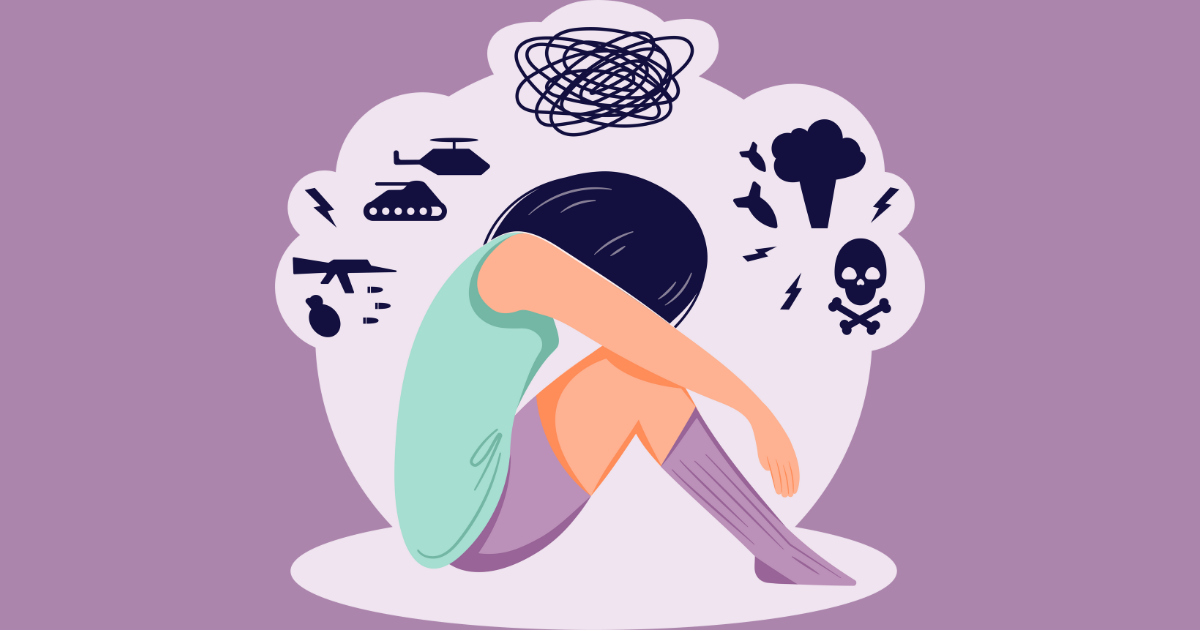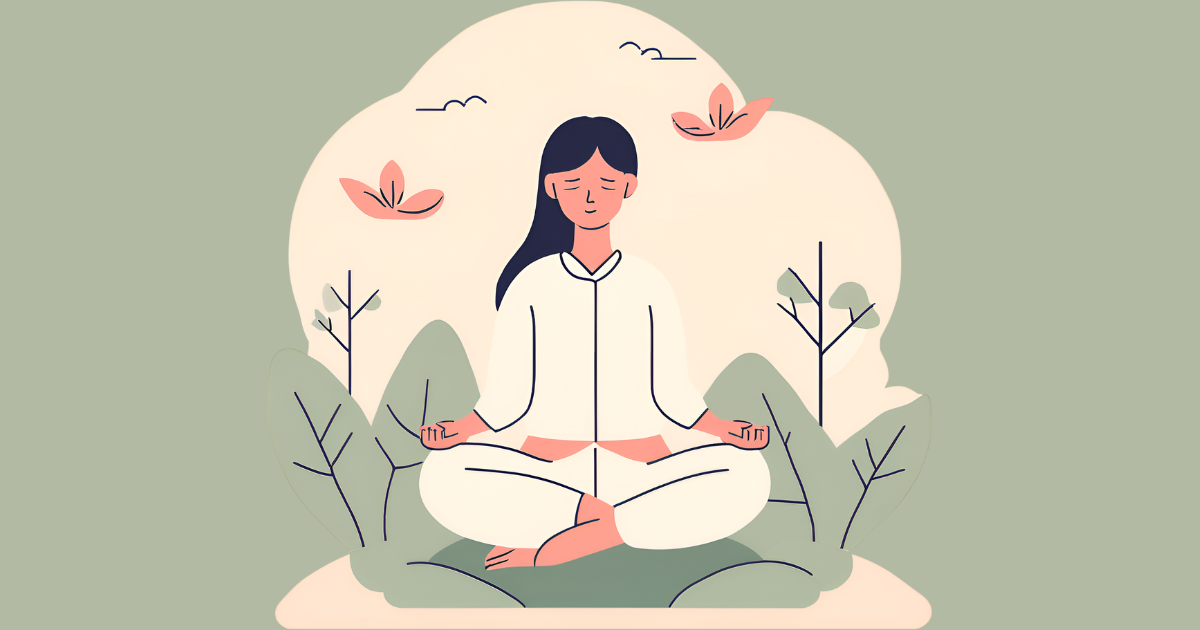Meditation is more than just a relaxation technique; it’s a powerful tool for enhancing mental well-being. In today’s fast-paced world, where stress and anxiety seem to be constant companions, finding effective ways to nurture our mental health is essential. Meditation offers a simple yet profound practice that can bring about transformative changes in your mind and life. In this post, we’ll explore the best 9 benefits of meditation for mental health, highlighting how this ancient practice can help you achieve a calmer, more balanced, and healthier mind.
Table of Contents
What Is Mental Health
- Mental health refers to emotional, psychological, and social well-being.
- It affects thinking, feeling, and daily functioning.
- Factors include genetics, environment, and life experiences.
- Examples include anxiety, depression, and bipolar disorder.
- Essential for handling stress, making decisions, and maintaining relationships.
- Involves managing stress, seeking support, and engaging in well-being activities.
Benefits Of Improving Mental Health
- Enhances ability to handle stress and adversity.
- Reduces the impact of stress on daily life.
- Increases overall satisfaction and productivity.
- Strengthens interpersonal connections.
- Lowers risk of stress-related illnesses.
- Fosters practices like therapy and mindfulness for better well-being.
Mindful Meditation for Mental Health
- Focuses on present-moment awareness with acceptance.
- Reduces stress, anxiety, and depression.
- Involves concentration on breath or bodily sensations.
- Improves ability to manage emotions.
- Enhances understanding of thoughts and feelings.
- Regular practice promotes relaxation and mental clarity.
How Mindfulness Helps Mental Health
- Encourages awareness of the current moment.
- Helps break harmful thought patterns.
- Builds better coping strategies.
- Increases understanding of personal emotions and reactions.
- Low levels of anxiety and depression.
- Promotes a balanced mental state.
The Science Of Mindful Meditation for Mental Health
- Alters brain activity related to attention and emotional regulation.
- Increases gray matter density in self-awareness areas.
- Lowers cortisol levels, reducing stress.
- Enhances overall mood and emotional balance.
- Shows increased connectivity in brain regions for executive functioning.
- Supports brain adaptability and emotional stability.
Managing Mental Health Through Meditation
- Incorporate meditation into daily life for balance.
- Includes mindfulness, guided imagery, and deep breathing.
- Helps in reducing anxiety and stress symptoms.
- Promotes relaxation and emotional stability.
- Enhances understanding and coping mechanisms.
- Regular practice supports ongoing mental health management.
Best 9 Benefits of Meditation for Mental Health
Meditation, often hailed as a pathway to tranquility, has been practiced for thousands of years. Its rise in modern wellness trends reflects its proven benefits, particularly for mental health. By integrating meditation into your daily routine, you can unlock numerous psychological benefits that enhance overall well-being. Let’s delve into the best nine benefits of meditation for mental health.
1. Reduces Stress
One of the most well-documented benefits of meditation is its ability to reduce stress. Stress often results from our response to challenging situations, leading to increased levels of cortisol, the stress hormone. Meditation helps counteract this by promoting relaxation and calmness. Techniques like mindfulness meditation teach you to focus on the present moment, reducing rumination on past stresses or future anxieties.

Studies have shown that regular meditation can lower cortisol levels, which contributes to a more balanced mood and decreased anxiety. By creating a mental space where stressors are managed more effectively, meditation helps you approach life’s challenges with greater resilience and composure.
2. Enhances Emotional Well-Being
Meditation fosters emotional well-being by increasing self-awareness and self-acceptance. Through practices like loving-kindness meditation, you learn to cultivate compassion towards yourself and others. This emotional practice encourages positive feelings and reduces negative self-talk.

Research indicates that meditation can enhance mood and lead to greater emotional stability. Regular practice helps individuals become more aware of their emotions and develop healthier responses. This increased emotional intelligence can lead to improved relationships and a more fulfilling life.
3. Improves Concentration and Focus
In our fast-paced world, maintaining focus can be challenging. Meditation can significantly enhance concentration and cognitive function. Techniques such as focused attention meditation involve directing your attention to a single point of focus, like your breath or a mantra.

Studies suggest that meditation can improve attention span and cognitive flexibility. Regular practice trains your brain to sustain attention and resist distractions. This heightened focus not only benefits your professional and academic performance but also enriches everyday activities.
4. Promotes Better Sleep
Struggling with sleep issues? Meditation may offer a natural solution. Insomnia and poor sleep quality are often linked to stress, anxiety, and an overactive mind. Meditation practices like body scans and progressive relaxation can help calm your mind and prepare your body for restful sleep.

Research supports that meditation can improve sleep quality and reduce insomnia symptoms. By incorporating meditation into your bedtime routine, you can achieve deeper, more restorative sleep and wake up feeling refreshed and energized.
5. Reduces Symptoms of Anxiety and Depression
Meditation has been shown to alleviate symptoms of anxiety and depression. Mindfulness meditation, in particular, helps individuals become more aware of their thoughts and feelings without judgment. This awareness allows you to break free from negative thought patterns and gain perspective on your mental state.

Clinical studies have demonstrated that meditation can significantly reduce symptoms of anxiety and depression. By promoting a more balanced and mindful approach to life, meditation provides valuable tools for managing mental health challenges and improving overall well-being.
6. Enhances Self-Awareness
Self-awareness is a cornerstone of personal growth and emotional health. Meditation encourages introspection and self-reflection, helping you gain a deeper understanding of your thoughts, feelings, and behaviors. Practices like mindfulness and self-inquiry meditation facilitate this exploration.

Enhanced self-awareness allows you to identify patterns in your behavior and thought processes that may be affecting your mental health. This insight empowers you to make positive changes and develop healthier coping strategies, leading to a more fulfilling and authentic life.
7. Boosts Resilience
Life is full of ups and downs, and resilience is key to navigating these fluctuations effectively. Meditation strengthens resilience by teaching you to stay grounded and maintain inner calm despite external challenges. Techniques like mindfulness and breath awareness foster a sense of stability and emotional balance.

Regular meditation practice helps build mental fortitude and adaptability. By learning to manage stress and adversity with greater ease, you become better equipped to handle life’s inevitable challenges and bounce back from setbacks with renewed strength.
8. Fosters a Sense of Inner Peace
Inner peace is the state of being mentally and emotionally at ease, regardless of external circumstances. Meditation is a powerful tool for cultivating this sense of tranquility. By focusing on the present moment and letting go of worries and distractions, you create a space of inner calm.

Practices such as transcendental meditation and loving-kindness meditation promote a deep sense of peace and contentment. This inner serenity extends to all areas of your life, enhancing your overall well-being and providing a refuge from the stresses of daily living.
9. Improves Relationships
Meditation not only benefits individual mental health but also enhances interpersonal relationships. Mindfulness and compassion meditation foster empathy, understanding, and patience, which are essential for healthy relationships. By cultivating a more mindful approach to interactions, you can improve communication and strengthen connections with others.

Research has shown that meditation can enhance relationship satisfaction and reduce conflict. By becoming more aware of your own emotions and those of others, you develop a deeper appreciation for different perspectives and build more harmonious relationships.
Getting Started with Meditation
If you’re new to meditation, starting can feel overwhelming. Here are a few tips to help you begin your meditation journey:
- Start Small: Begin with just a few minutes a day and gradually increase the duration as you become more comfortable.
- Choose a Quiet Space: Find a calm and quiet place where you can sit or lie down without distractions.
- Focus on Your Breath: Use your breath as an anchor to bring your attention to the present moment.
- Be Patient: It’s normal for your mind to wander. Gently bring your focus back to your breath without judgment.
- Explore Different Techniques: Try various meditation styles to find what resonates with you, whether it’s mindfulness, loving-kindness, or guided meditation.
Conclusion
Meditation offers a wealth of benefits for mental health, from reducing stress and anxiety to enhancing emotional well-being and relationships. By incorporating meditation into your daily routine, you can experience profound improvements in your mental health and overall quality of life. Embrace the practice with an open mind and a willingness to explore, and you’ll unlock the transformative power of meditation for a more balanced and fulfilling life.
FAQ
1. How does meditation help mental health?
Meditation helps mental health by promoting relaxation, reducing stress, and increasing self-awareness. It encourages mindfulness, allowing individuals to focus on the present moment, which can alleviate symptoms of anxiety and depression. Regular meditation also enhances emotional regulation, helping you manage negative thoughts and feelings more effectively.
2. What are 5 ways to improve mental health?
- Practice Mindfulness: Engage in daily mindfulness or meditation exercises to stay present and reduce stress.
- Stay Active: Regular physical activity boosts mood and overall mental well-being.
- Connect with Others: Building strong social connections can provide support and reduce feelings of loneliness.
- Prioritize Sleep: Ensure you get enough restful sleep each night to maintain cognitive and emotional balance.
- Seek Professional Help: Don’t hesitate to reach out to a mental health professional if you’re struggling with persistent issues.
3. What are the 10 benefits of meditation?
- Reduces Stress: Meditation helps lower cortisol levels, the hormone responsible for stress.
- Enhances Emotional Health: It promotes a positive outlook and emotional resilience.
- Improves Concentration: Regular practice sharpens focus and attention.
- Increases Self-Awareness: Meditation fosters a greater understanding of oneself.
- Promotes Mental Clarity: It clears the mind, reducing mental clutter.
- Improves Sleep Quality: Meditation can help you relax and improve your sleep patterns.
- Reduces Anxiety: It helps in managing and reducing symptoms of anxiety.
- Boosts Creativity: Meditation can enhance creative thinking by reducing distractions.
- Strengthens Emotional Intelligence: It aids in better understanding and managing emotions.
- Supports Mind-Body Connection: Meditation helps you become more in tune with your body’s needs.
4. Is meditation good for depression?
Yes, meditation can be beneficial for depression. It helps reduce the symptoms of depression by fostering mindfulness and self-compassion, reducing negative thought patterns, and promoting a sense of calm. While it is not a replacement for professional treatment, meditation can be a valuable complementary practice in managing depression.
Discover more from Positive Treasure
Subscribe to get the latest posts sent to your email.




